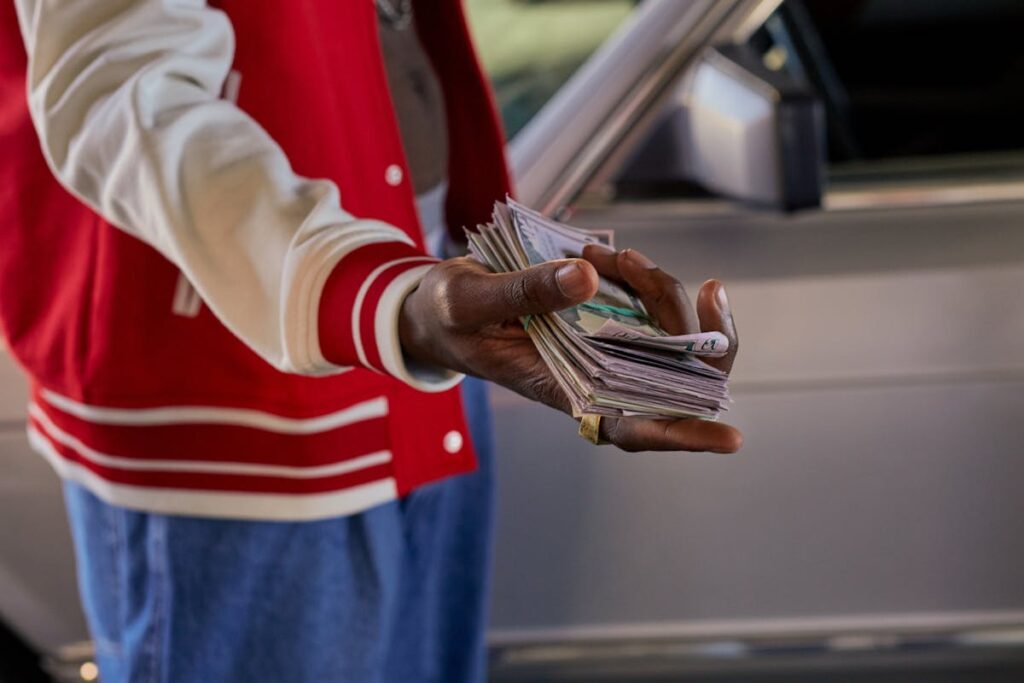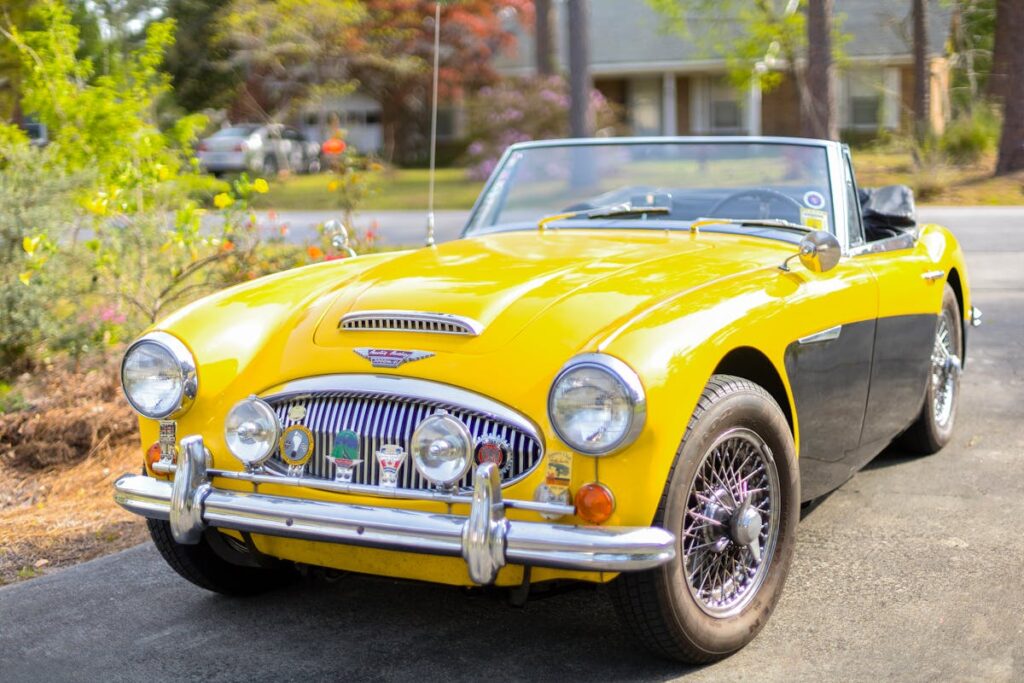Inheriting a classic car may initially seem like a delightful windfall, yet the reality of owning such a vehicle can quickly temper this enthusiasm. The significant financial implications of maintaining, storing and insuring a vintage automobile can present unwelcome challenges. Additionally, the emotional tug of family history attached to the car can make the decision to keep or sell deeply complex. This quandary provides a fascinating intersection of practical and sentimental considerations, inviting us to explore whether the inheritance of a classic car is truly a gift or an unexpected burden.
Understanding Classic Car Inheritance
While many find the idea of inheriting a classic car a thrilling prospect, it’s essential to understand the intricacies involved in classic car inheritance. To begin with, one must recognize that the classic car value is often far from straightforward. Unlike modern vehicles, the worth of a classic car is not merely determined by its age, but by a complex mix of factors like rarity, condition, and demand. Additionally, the emotional attachment tied to these vehicles can greatly complicate the process. For many, these cars aren’t just modes of transportation, but cherished symbols of familial history or personal memories. Maneuvering these intertwined layers of financial and emotional considerations is important in managing a classic car inheritance effectively.
The Cost of Classic Car Maintenance
In addition to the complexities of classic car inheritance, one must also take into consideration the cost of maintenance. Classic cars require specialized care and upkeep, which often translates into higher maintenance costs than modern vehicles. From engine tuning to the preservation of original parts and paint, every detail can contribute to the overall expense.
In some cases, the scarcity of original parts can lead to significant repair expenses. Specialized labor, often required for these classics, may also add to the costs. It is essential to factor in these considerations before taking on the responsibility of a classic car. By understanding the true expense of maintenance, potential owners can make informed decisions about their inherited classic vehicles.
Storage Challenges for Vintage Vehicles
Storing vintage vehicles presents a unique set of challenges, the first of which is finding adequate space that also meets specific climate control requirements. Classic cars demand a temperature-regulated environment to prevent damage to their intricate and often rare components. Additionally, security measures must be in place to protect these valuable assets, and insurance considerations become paramount to mitigate potential loss or damage.
Space Constraints for Storage
Ownership of a classic car can be an exhilarating journey into the past, but it also presents certain logistical challenges. Chief among these is the issue of space constraints for storage. For many, a personal garage may not be available or sufficient for housing such a vehicle. Hence, garage alternatives become a vital consideration. Renting a storage unit or securing space in a specialized car storage facility are viable options. For smaller spaces, creative solutions such as car lifts can be employed, effectively doubling the storage area in a standard garage. Remember, the goal is to guarantee the preservation of the vehicle without compromising its condition, which can be achieved with careful planning and a thoughtful approach to these storage challenges.
Climate Control Necessities
Classic vehicles, much like vintage wine, demand certain environmental conditions to retain their pristine quality. Climate control systems are essential in maintaining the exceptional state of these cherished antiques. Exposure to extreme temperature swings can wreak havoc on the delicate interior, paint, and mechanical systems.
To combat potential damage, consider the installation of vintage air conditioning units in storage spaces. These systems can maintain a steady, ideal temperature and prevent harm to the vehicle’s upholstery, wood, metal, and rubber components. Humidity control is equally crucial in preventing rust or mold, which can greatly diminish the car’s value.
Security and Insurance Issues
While the preservation of classic cars demands attention to environmental conditions, it also mandates stringent security measures and thorough insurance coverage to safeguard against potential threats.
- Classic Car Security: Investing in robust security systems is essential. This includes alarms, tracking devices, and secure storage facilities.
- Insurance Coverage: Opt for specialized classic car insurance policies, which cover the vehicle’s agreed value rather than its actual cash value.
- Documentation: Maintain a detailed record of the car’s history, restorations, and appraisals to validate its value for insurance purposes.
- Regular Inspection: Regularly inspect the vehicle and storage conditions to identify potential threats and mitigate them promptly.
Emotional Ties and Decision Making
In the domain of inheritance, the emotional ties that bind us to the possessions of our departed loved ones can considerably influence our decision-making process. This is particularly true when the inherited item is a classic car, an object that often carries significant sentimental value. The emotional attachment can make difficult decisions even more challenging. Deciding what to do with the car may lead to personal conflict and emotional distress. The vehicle might be a symbol of cherished memories, making the thought of parting with it painful. Nonetheless, it’s essential to approach these emotionally charged decisions rationally, objectively evaluating the practicality and cost-effectiveness of keeping the inherited car versus alternative options. Remember, decisions should ultimately respect the deceased’s intentions and the inheritor’s well-being.

Selling Your Inherited Classic Car
As emotions settle and practical considerations come to the forefront, the idea of selling your inherited classic car may emerge. This decision often entails a complex process, but can be simplified into four key steps:
- Appraisal Process: Engage a professional to evaluate the car’s condition and determine its market value.
- Market Research: Study similar cars’ prices and demand to validate the appraisal.
- Auction Options: Consider selling at an auction, where classic car enthusiasts can drive up the price.
- Direct Sale: Alternatively, sell directly to a buyer for a quicker, but potentially less profitable, transaction.
This journey requires patience and understanding of the classic car market. With proper guidance, selling your inherited classic car can be a profitable endeavor.
Donating an Unwanted Classic Car
Should the thought of maintaining or selling an inherited classic car seem overwhelming, donating it to a charitable organization might be a worthy alternative. There are various donation options available, each with its own set of benefits. For instance, some charities either use donated vehicles for their operations or auction them off to fund their activities. Others, specialize in restoring classic cars and showcasing them in museums or events. In addition to the altruistic satisfaction, another significant advantage of donating your unwanted classic car is the potential tax benefits. Depending on the organization and your personal tax situation, you may be able to write off the car’s full market value, potentially resulting in substantial savings.
Preserving a Classic Car’s Value
While inheriting a classic car can be a delightful surprise, preserving its value can pose a significant challenge. Here are four critical steps to guarantee value appreciation while managing restoration costs:
- Regular Maintenance: Consistently service the vehicle to keep it running smoothly and prevent costly repairs.
- Proper Storage: Store in a climate-controlled environment to protect from weather damage.
- Authentic Restoration: Original parts and specifications maintain authenticity, thereby increasing value.
- Documentation: Keep detailed records of maintenance, restorations, and provenance to demonstrate the car’s history.
Insurance Matters for Classic Cars
Understanding the intricacies of insuring a classic car is essential for every owner of such a valuable asset. Classic car insurance differs notably from standard auto insurance, considering the unique value and usage of vintage vehicles. Thorough policy evaluation must be undertaken to guarantee the car’s value is fully covered, including its parts, restoration costs, and potential appreciation. Insurers specializing in classic cars often provide tailored policies, taking into account factors such as limited mileage and car show attendance. Owners should also be aware of the agreed value clause, which guarantees the full insured amount in case of total loss, a feature not typically found in standard policies. Fundamentally, securing the right insurance is vital in maintaining a classic car’s value and legacy.
Frequently Asked Questions
Can a Classic Car Be Used as a Daily Driver?
Yes, a classic car can be used as a daily driver, provided it offers reliable performance. However, it often requires daily maintenance due to the age and wear of its mechanical components.
How Can I Authenticate the Originality of My Inherited Classic Car?
To authenticate the originality of your inherited classic car, conduct a VIN verification and extensive documentation research. This includes checking engine numbers, chassis numbers, and cross-referencing with original factory records when available.
Is There a Market for Classic Car Parts if I Decide to Dismantle It?
Yes, there is a market for classic car parts. Dismantling your vehicle could prove beneficial, as vintage parts are often sought after by enthusiasts and restorers, particularly if the parts are original and in good condition.
How Can I Learn About the History of My Inherited Classic Car?
To learn the history of your classic car, consider researching the car’s make, model, and year. Seek out historical records, visit car shows, or join car clubs to learn about restoration techniques and car history.
Can I Modify the Inherited Classic Car Without Decreasing Its Value?
Modifying an inherited classic car can offer personalization benefits, however, it may not necessarily preserve its value. Authenticity is often valued in classic cars, hence alterations could potentially decrease its worth in the collector’s market.

